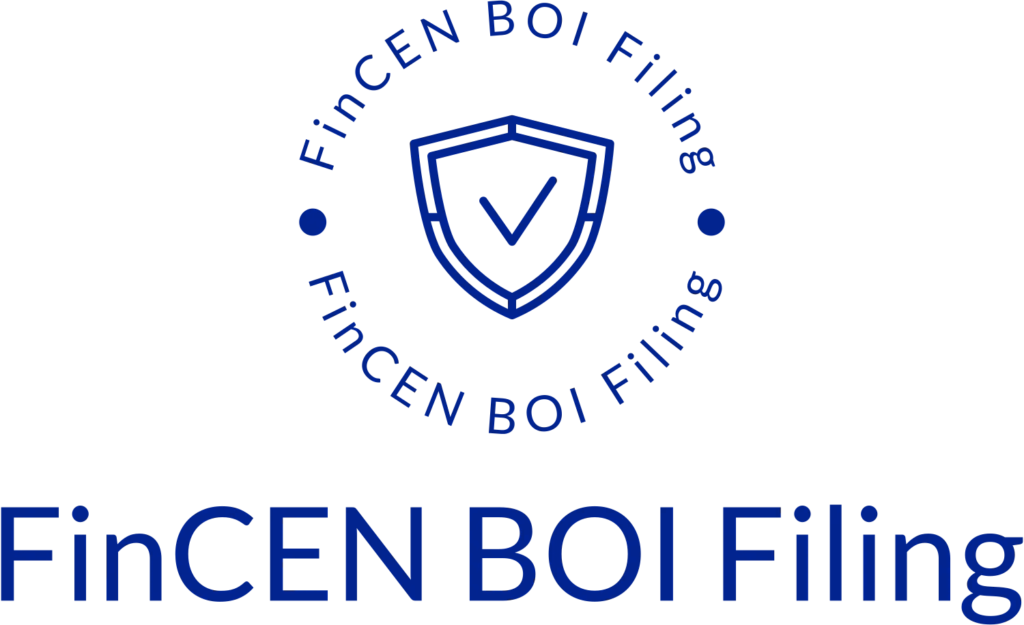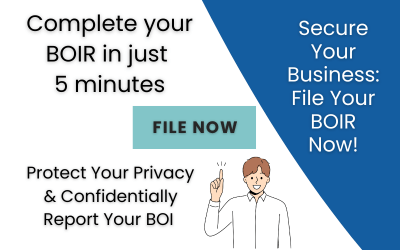Exempt Entities
The Beneficial Ownership Information (BOI) reporting requirements, enforced by the Financial Crimes Enforcement Network (FinCEN), aim to increase transparency and combat illicit activities such as money laundering and tax evasion. However, not all entities are required to file a BOI report. Understanding who is exempt and why can help businesses navigate these regulations more effectively.
Certain organizations are exempt from filing BOI reports due to their existing regulatory oversight and transparency requirements. Here are some key exemptions and the reasons behind them:
1) Publicly Traded Companies
- Reason for Exemption: Publicly traded companies are already subject to stringent reporting and disclosure requirements under the Securities Exchange Act of 1934. They must regularly file detailed reports with the Securities and Exchange Commission (SEC), which includes information about their beneficial owners.
- Examples: A corporation listed on the New York Stock Exchange (NYSE) or NASDAQ.
2) Regulated Entities
- Reason for Exemption: Certain entities are heavily regulated by federal or state agencies, which already require extensive disclosure of ownership and control. These regulations ensure a high level of transparency.
- Examples: Banks, credit unions, insurance companies, and registered investment companies.
3) Non-Profit Organizations
- Reason for Exemption: Non-profits are generally exempt because they are subject to oversight by the IRS and must file detailed annual reports (Form 990) that include information about their governance and financial activities.
- Examples: Charitable organizations, educational institutions, and religious organizations.
4) Inactive Entities
- Reason for Exemption: Entities that are inactive, have no significant assets, and have not engaged in any business activities for a specified period (typically within the past 12 months) may be exempt from reducing the reporting burden on dormant entities.
- Example: A corporation that has not conducted any business and has no assets or income.
Entities Required to File
Despite these exemptions, many businesses must comply with BOI reporting requirements. Here are some examples:
1) Small and Medium-Sized Enterprises (SMEs)
- Description: These businesses often have fewer regulatory reporting requirements than larger corporations, making them a focus for BOI reporting to ensure transparency.
- Example: A local restaurant chain, a family-owned manufacturing company, or a tech startup.
2) Limited Liability Companies (LLCs)
- Description: LLCs are common structures for small businesses and can be susceptible to misuse for illicit activities if ownership is not transparent.
- Example: An LLC formed for real estate investment or a consulting business.
3) Partnerships
- Description: Partnerships, especially limited partnerships, can have complex ownership structures that warrant closer scrutiny.
- Example: A real estate development partnership or a law firm.
Specific Industry Exemptions
FinCEN has recognized that certain types of entities pose a lower risk for money laundering and other financial crimes and has therefore exempted 23 specific industries from the BOIR filing requirement under the Corporate Transparency Act (CTA). These exemptions are designed to reduce the regulatory burden on industries already heavily regulated or with a low-risk profile. The exempted entities are generally well-established, subject to federal or state regulation, or have easily identifiable ownership structures. However, it’s important to note that while these entities are exempt from filing a BOIR, they may still be subject to other reporting requirements or regulations specific to their industry.
Here is a list of the 23 industries exempted from BOIR filing:
- Securities reporting issuers
- Governmental authorities
- Banks
- Credit unions
- Depository institution holding companies
- Money services businesses
- Brokers or dealers in securities
- Securities exchanges or clearing agencies
- Other Exchange Act registered entities
- Investment companies or investment advisers
- Venture capital fund advisers
- Insurance companies
- State-licensed insurance producers
- Commodity Exchange Act registered entities
- Accounting firms
- Public utilities
- Financial market utilities
- Pooled investment vehicles
- Tax-exempt entities
- Entities assisting tax-exempt entities
- Large operating companies
- Subsidiaries of certain exempt entities
- Inactive entities
Not sure if your business needs to file? FinCEN BOI Filing has you covered. Click the button below to take our BOI quiz and find out if you have a filing requirement.
Conclusion
Understanding the exemptions from BOI filing requirements is crucial for compliance. While publicly traded companies, regulated entities, government-owned entities, non-profits, and inactive entities are generally exempt due to their existing transparency obligations, many small and medium-sized businesses, LLCs, and partnerships are required to file. This regulatory landscape aims to strike a balance between ensuring transparency and reducing unnecessary burdens on organizations.
Understanding your business type and its obligations can help you navigate BOI reporting requirements and ensure compliance with FinCEN regulations. If you’re unsure whether your business needs to file, FinCEN BOI Filing can help. Take our 2-minute BOI quiz to find out if you have a filing requirement. If you already know you need to file, Click Here to complete your BOI filing confidentially and securely. Get started today to ensure your business stays compliant with ease.






